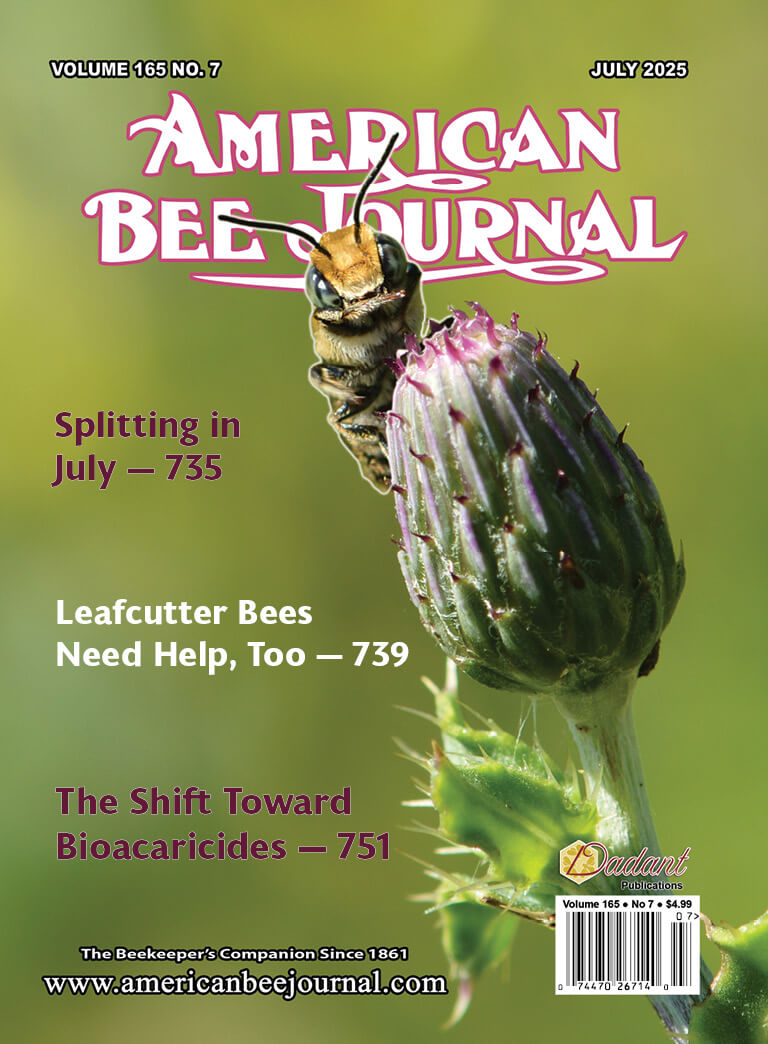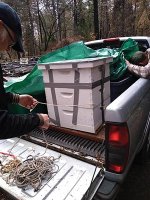Sue Hubbell
When I first kept bees, about 30 years ago, the bee inspector of my county loaned me a paperback copy of Sue’s “A Book of Bees and How to Keep Them.” Later a friend gave me a hardback copy of the first edition of the book which I have treasured. Her ability to write so beautifully of her thoughts, situations and life in general was truly inspirational. Thank you for the article (December 2018).
I meant to write sooner as I think the improved content, readability and style of ABJ has made it much easier to understand. I now read almost cover to cover whereas I used to just skim. I could not let the Sue Hubbell article pass without comment.
Looking forward to a new year with lots of good ABJ reading.
Judy Pendergast
Rocky River, OH
Keep up the good work!
Dear Kirsten,
Last December I renewed my subscription, after an absence of 35 years, to the American Bee Journal. I am so glad I renewed. I really enjoy the overall organization of the journal from your opening letter, letters to the editor, events around the country, “The Classroom,” many interesting articles and yes, even the advertisements. I read the magazine cover-to-cover as soon as it arrives.
I understand that you became the editor just last year. I wanted to send along my thanks and appreciation for a great journal. A strong and informative ABJ is more important now than ever as we fight to keep our bees alive. There were a few articles that were particularly helpful to me.
The first was your own article in the September issue, “Beekeeping Basics: Are You Ready for Winter?” In just two well-written pages you were able to present the key preparations for winter. I found it very helpful and I am happy to say that I did everything on the list starting in July like you have outlined.
The August article “Fishing for Honey Bees,” by Jennifer Standley, helped me to understand why some of my swarm catcher hives work great and others do not. Jennifer’s clear direction on box size, entrance size, entrance direction, height off the ground and location in the shade all matched my successful bait hives and now I know why they worked. Going forward I will be locating all my swarm catchers higher and in the shade.
I really enjoyed Jerry Borger’s “Hobbyist Queens – Using a Double Screen Board,” also in the September issue, outlining how to raise a few queens from a favorite colony without grafting during the prime time for queen development. His one page summary of the procedure was excellent and I will put it to the test this coming spring, with one of my long-lived colonies headed by a local queen that shows the best resistance to mites in my apiaries.
My favorite article was in the April issue by Caroline Abbott entitled “A Turn in Approach – The Long Lang Hive.” I found Caroline’s experiences with this hive very inspirational. With this hive I can avoid lifting full deeps that are stacked three or four high and work with a colony at waist level. Sign me up! Caroline kindly answered my email and shared the plans for the hive. Building one of these hives is on my list for this winter.
Suggestions: Make Randy (rock star) Oliver’s illustrations larger; sometimes they are hard to see. Do an article on Vavaldi boards. (I am trying them this winter.)
Compared to the challenges we face today, keeping bees 51 years ago when I became a beekeeper was easy. All my colonies always survived the winter, purchased queens lasted three years, and my bees made lots of honey. My biggest problem was finding enough money to purchase more boxes for all the bees. This is the definition of the “good old days”. Now I measure success by one metric: Did I keep my bees alive? The answer is no, with 2017 and 2018 showing my highest losses. It’s bad enough to lose a colony (that was packed with bees, had monitored mite loads, and was treated as needed to maintain low mite counts), but when it is a hive of one of the young beekeepers that I mentor (and I am supposed to know what I am doing) it is heartbreaking. I look to the ABJ as one of my sources for help. Keep up the good work, I am counting on you.
Sincerely,
David
North Carolina
Response from the Editor:
Dear David,
As you likely know by now, Kirsten recently stepped down as Editor to pursue other interests. She made a positive mark on this magazine, and we will continue some of her innovations, as well as the sort of how-to articles that you and other readers have long found useful.
I also appreciate your suggestions, and have already addressed the readability of “Rock Star” Randy’s graphs and illustrations.
It’s good to have you back! I sincerely hope we can continue to earn your trust.
Eugene
Update on Camp Fire Survival Hive
Last month we heard from Erin Dickerson, who fled California’s horrific Camp Fire with her family on November 8. The conflagration took her house, her car and even her place of employment, but somehow her lone beehive survived, and she was trying to find a way to rescue “the ladies” from the desolate aftermath. The last we heard, Olivarez Honey Bees (OHB) in Orland had offered to help her out.
Here is an update:
November 20: I got some disappointing news this morning. Olivarez is not able to help me get my ladies off the mountain. We’re still under evacuation order for the foreseeable future, so I can’t get up there to feed them. I’m concerned about the bears, they are going to be hungry, and we have a terrible rain storm coming! I feel so helpless right now, I’m so worried and there is nothing I can do. It’s such a ….



